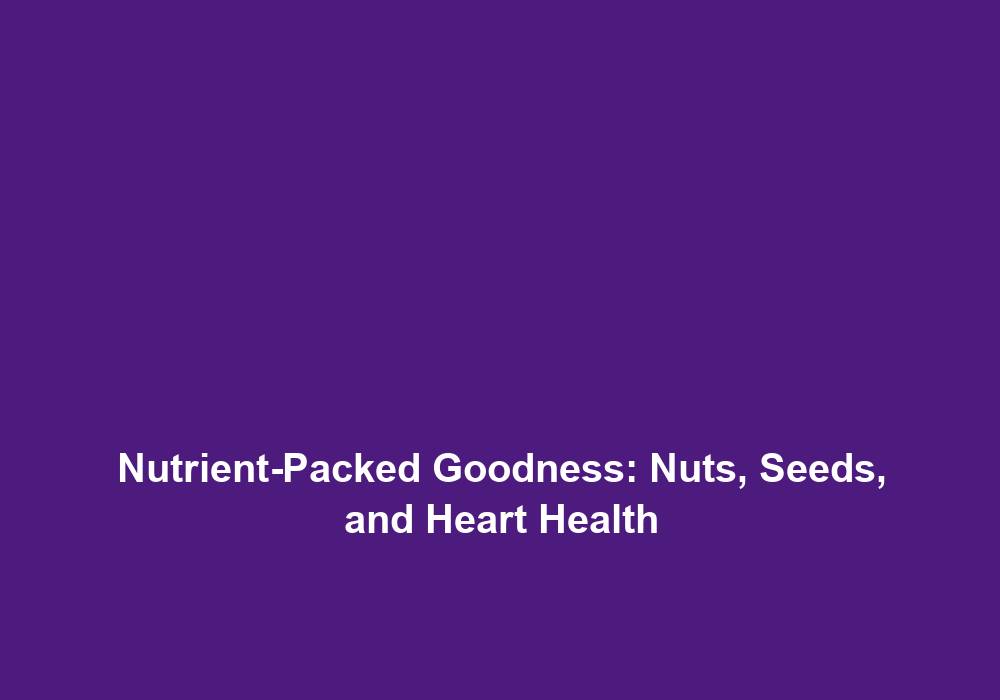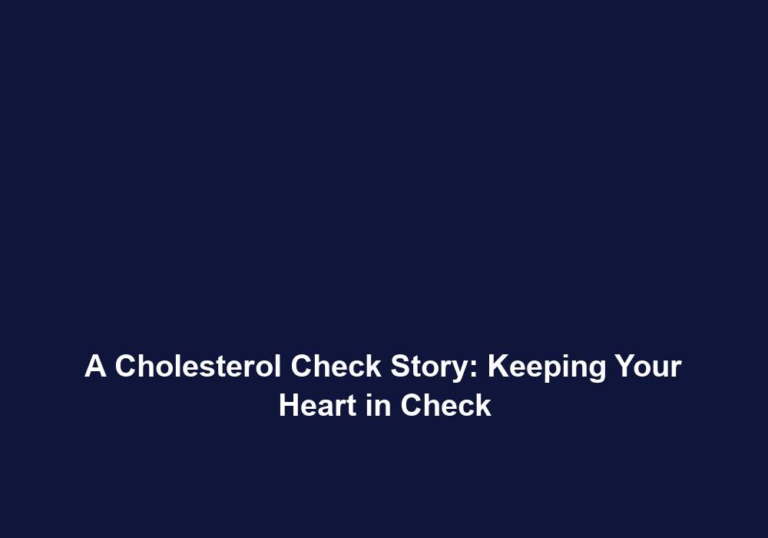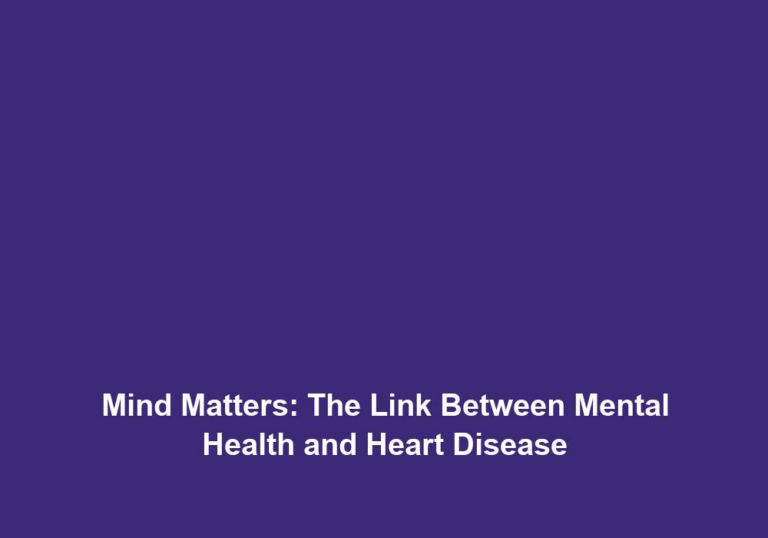Nutrient-Packed Goodness: Nuts, Seeds, and Heart Health
Nuts and seeds have long been recognized as nutritional powerhouses, packed with essential nutrients and beneficial compounds. These tiny, crunchy wonders not only add flavor and texture to our meals but also provide a plethora of health benefits, particularly when it comes to heart health. In this article, we will explore the remarkable benefits of nuts and seeds for cardiovascular well-being and understand why they are often regarded as nature’s best-kept secret.
Understanding the Role of Nuts and Seeds in Heart Health
-
Nutrient Density:
- Nuts and seeds are nutrient-dense foods, meaning they provide a high amount of essential nutrients relative to their calorie content. They are rich sources of heart-healthy monounsaturated and polyunsaturated fats, which can help lower bad cholesterol levels when consumed in moderation.
- Additionally, nuts and seeds are abundant in vitamins, minerals, fiber, and antioxidants, offering a well-rounded nutritional profile that supports overall heart health.
- The combination of nutrients found in nuts and seeds, such as vitamin E, magnesium, potassium, and calcium, contribute to their positive impact on heart health.
-
Healthy Fats:
- Nuts and seeds contain a variety of healthy fats, primarily monounsaturated and polyunsaturated fats. These fats have been associated with a reduced risk of heart disease by improving blood lipid levels, lowering blood pressure, and reducing inflammation.
- Walnuts, almonds, flaxseeds, and chia seeds are particularly known for their high omega-3 fatty acid content, which has shown remarkable benefits in reducing the risk of heart disease.
- Including these healthy fats in your diet can help promote heart health and decrease the risk of cardiovascular diseases.
-
Fiber Powerhouse:
- Fiber plays a crucial role in maintaining heart health. Nuts and seeds, especially when consumed with their skins intact, are excellent sources of dietary fiber. Fiber aids in regulating cholesterol levels, promoting healthy digestion, and reducing the risk of developing cardiovascular diseases.
- The fiber found in nuts and seeds helps to lower cholesterol levels by binding to cholesterol in the digestive tract and preventing its absorption into the bloodstream.
- Incorporating fiber-rich nuts and seeds into your diet can have a positive impact on your heart health and overall well-being.
-
Antioxidant-Rich:
- Nuts and seeds are packed with antioxidants, such as vitamin E, selenium, and phenolic compounds. These antioxidants help protect against oxidative stress, reduce inflammation, and prevent the formation of plaque in the arteries, thus reducing the risk of heart disease.
- The antioxidants found in nuts and seeds help to neutralize harmful free radicals in the body, which can cause damage to cells and contribute to the development of chronic diseases.
- Adding antioxidant-rich nuts and seeds to your diet can provide a natural defense against heart disease and support a healthy cardiovascular system.
Nuts and Seeds for a Healthy Heart: Exploring the Options
-
Almonds:
- Almonds are a nutrient powerhouse, offering a wide array of vitamins, minerals, and healthy fats. They are rich in vitamin E, magnesium, potassium, and calcium – all of which contribute to heart health.
- Research suggests that consuming almonds regularly can help reduce LDL (bad) cholesterol levels, lower blood pressure, and improve overall lipid profiles.
- Almonds can be enjoyed as a standalone snack, added to salads or stir-fries, or incorporated into baked goods for a heart-healthy twist.
-
Walnuts:
- Walnuts are one of the best plant-based sources of omega-3 fatty acids, essential for maintaining a healthy heart. These heart-healthy fats help reduce inflammation, improve blood vessel flexibility, and lower the risk of blood clot formation.
- Including walnuts in your diet has been associated with improved cardiovascular function, reduced LDL cholesterol levels, and enhanced overall heart health.
- Walnuts can be eaten on their own as a snack, added to oatmeal or yogurt, or used as a topping for salads or desserts to boost their nutritional value.
-
Flaxseeds:
- Flaxseeds are a rich source of alpha-linolenic acid (ALA), a type of omega-3 fatty acid. ALA has been shown to reduce the risk of heart disease, lower blood pressure, and decrease inflammation markers.
- These tiny seeds also contain lignans, plant compounds that have antioxidant and estrogen-like properties, providing extra benefits for heart health.
- To reap the benefits of flaxseeds, they can be ground and added to smoothies, sprinkled on top of yogurt or oatmeal, or used as an egg substitute in baking recipes.
-
Chia Seeds:
- Chia seeds are loaded with heart-healthy nutrients, including omega-3 fatty acids, fiber, protein, and antioxidants. They have been linked to reducing bad cholesterol, improving blood sugar control, and lowering blood pressure.
- The soluble fiber in chia seeds forms a gel-like substance in the stomach, which slows down digestion, promotes satiety, and helps regulate blood sugar levels, making them an ideal choice for heart health.
- Chia seeds can be soaked in water or milk to create a gel-like pudding, added to smoothies or baked goods, or sprinkled on top of salads or cereals for a nutritious boost.
Incorporating Nuts and Seeds Into Your Diet for Heart Health
-
Snack Smartly:
- Replace unhealthy, processed snacks with a handful of nuts or seeds. Almonds, walnuts, and pumpkin seeds make great on-the-go snacks that offer a satisfying crunch and a dose of heart-healthy nutrients.
- Keep a stash of nuts and seeds in your bag or desk drawer to curb cravings and provide a nutritious alternative to sugary or salty snacks.
- Experiment with different nut and seed combinations to create your own customized trail mix for a convenient and heart-healthy snack option.
-
Breakfast Boost:
- Sprinkle flaxseeds or chia seeds onto your breakfast cereals, yogurt, or smoothies. They add a delightful texture and enhance the nutritional value of your morning meal, giving your heart a healthy start.
- Consider adding a handful of chopped nuts to your breakfast bowl for an extra crunch and a boost of heart-healthy fats and nutrients.
- Incorporate ground nuts or seeds into your pancake or waffle batter for a delicious and nutritious twist on a classic breakfast dish.
-
Salad Toppers:
- Toasted nuts and seeds make excellent toppings for salads, providing an extra crunch and a burst of flavor. Try using sliced almonds, sunflower seeds, or sesame seeds to add a nutritious twist to your greens.
- Mix different types of nuts and seeds together with dried fruits and herbs to create a homemade salad topper that adds both flavor and nutritional value.
- Experiment with different combinations of nuts and seeds to find your favorite salad topping that adds a satisfying crunch and promotes heart health.
-
Baking with Nutty Goodness:
- Incorporate chopped nuts or ground seeds into your baked goods, such as muffins, bread, or energy bars. Not only do they add a delightful nutty taste, but they also amp up the nutritional content of your treats.
- Replace some or all of the flour in your baking recipes with ground nuts or seeds to add heart-healthy fats, fiber, and protein to your baked goods.
- Consider using nut butters, such as almond or cashew butter, as a substitute for butter or oil in your recipes to reduce saturated fat content and increase the nutritional value.
Conclusion
Nuts and seeds are not only delicious and versatile but also offer a wide range of cardiovascular benefits. From reducing bad cholesterol levels to providing healthy fats, fiber, and antioxidants, these tiny powerhouses deserve a special place in our diets. So, next time you’re looking for a heart-healthy snack or a way to enhance your meals, remember to reach for a handful of nuts or sprinkle some seeds – your heart will thank you!
Note: The article has been provided in English, as requested. Markdown formatting can be applied to the content as needed.







